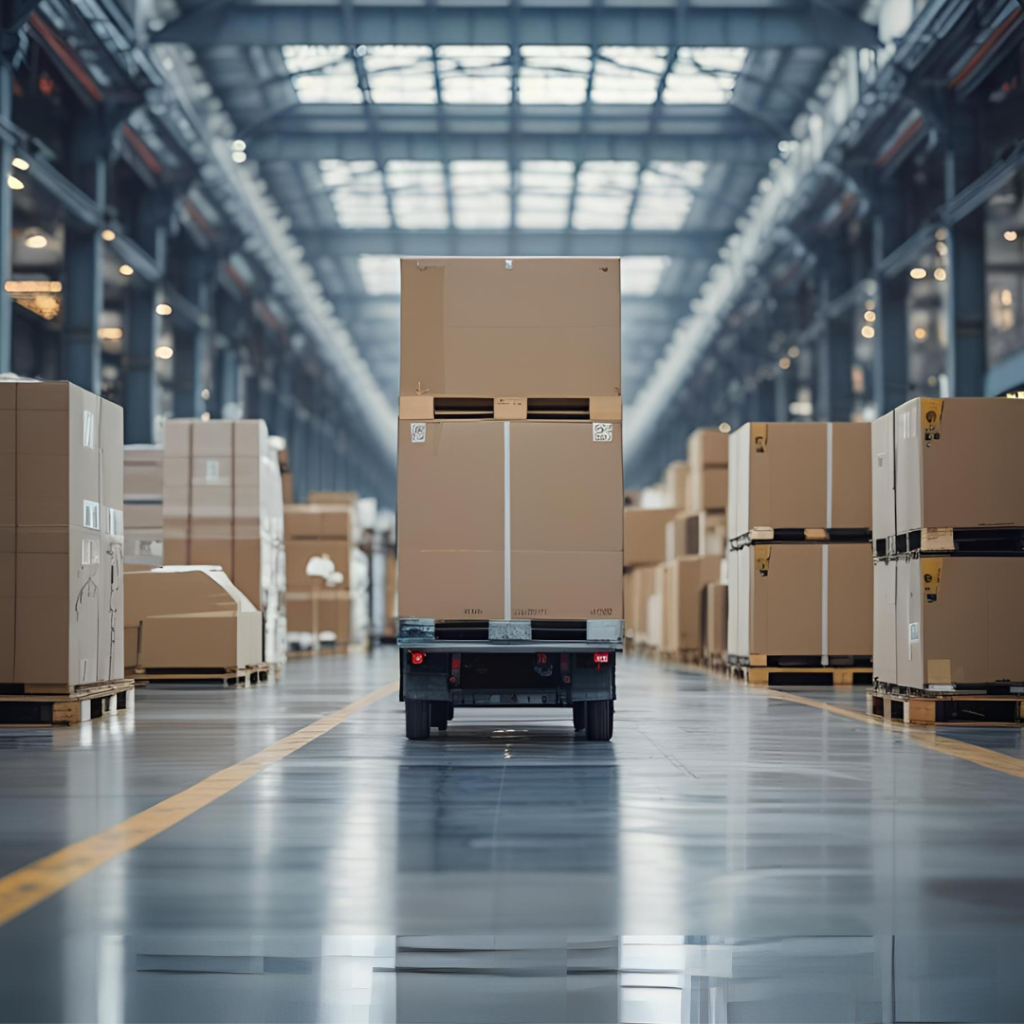¿Sabes qué documentos necesitas para que tu mercancía no se quede bloqueada en la aduana?
En primer lugar, entender cómo funciona el despacho aduanero es clave si vas a importar o exportar productos. Un error en este proceso puede suponer costes extra, retrasos e incluso sanciones legales. Por lo que, en esta TIP aprenderás qué es, quién interviene, qué documentos necesitas y cómo hacerlo paso a paso para evitar sorpresas.
“Más vale prevenir que curar”.
📌 ¿Qué es el despacho aduanero y por qué es tan importante?
Asimismo, el despacho aduanero es el procedimiento legal mediante el cual una mercancía entra o sale de un país. Generalmente, este proceso implica control, validación documental, verificación física y pago de impuestos o aranceles.
Así que, en otras palabras, es la “aduana” quien da el visto bueno para que tu producto viaje sin problemas entre fronteras. Por consiguiente, si estás pensando en importar o exportar, ignorar este proceso puede generar retrasos, gastos inesperados y hasta sanciones legales.
📈 Además, conocerlo bien te da ventaja competitiva, ya que podrás gestionar mejor tus costes logísticos y ofrecer entregas más rápidas a tus clientes.
🚧 ¿Quién interviene en un despacho aduanero?
Asimismo, en este proceso pueden participar varios actores clave:
- El exportador o importador (tú, como empresa).
- El agente de aduanas, que actúa en tu nombre.
- La administración aduanera del país (aduana).
- La empresa de transporte internacional.
- Entidades certificadoras, si tu producto requiere licencias especiales.
🎯 Cuanto mejor coordinados estén estos actores, más fluido será el despacho.
🔍 Tipos de despacho aduanero
Según el tipo de operación, existen varias modalidades:
- Despacho de importación: para ingresar mercancías desde el exterior.
- Despacho de exportación: cuando envías productos fuera del país.
- Despacho de tránsito: cuando los bienes solo cruzan un país sin quedarse.
- Despacho simplificado: para casos de bajo valor o riesgo, con trámites mínimos.
💡 Conocer la modalidad que te aplica te ahorra trámites y evita confusiones.
✅ Pasos para realizar un despacho aduanero correctamente
Para que no se te escape ningún detalle, sigue este paso a paso práctico:
Clasifica correctamente tu mercancía
Cada producto tiene un código arancelario (HS Code) que determina:
- Los impuestos que pagarás.
- Las restricciones o permisos.
- Las estadísticas de comercio.
Verifica si necesitas permisos o licencias
Algunos productos como alimentos, medicamentos o textiles pueden requerir:
- Permisos sanitarios.
- Certificados de origen.
- Licencias de importación/exportación.
- 📌 No tener estos documentos puede bloquear la mercancía.
Prepara toda la documentación obligatoria
Asegúrate de tener listos estos documentos básicos:
- Factura comercial.
- Lista de empaque (Packing List).
- Documento de transporte (ej. BL, AWB).
- Certificado de origen.
- Licencias o permisos (si aplica).
- 🎯 Importante: toda la documentación debe coincidir en cantidades, pesos, códigos, valores…
Presenta la declaración aduanera
Puedes hacerlo tú mismo a través de la plataforma de tu país (por ejemplo, AEAT en España) o delegarlo a un agente de aduanas autorizado.
Ventajas de usar un agente:
- Experiencia legal y técnica.
- Mayor rapidez en la tramitación.
- Ahorro de errores costosos.
Paga impuestos y aranceles
Antes de liberar la mercancía, deberás:
- Pagar el IVA de importación (si aplica).
- Pagar aranceles según código HS.
- Incluir otros costes logísticos o tasas.
- 💡 Puedes prever estos gastos simulando una operación real antes de importar.
Retira o entrega la mercancía
Una vez aprobado todo, ya puedes recoger tu mercancía o enviarla a destino final. Este paso también depende de los tiempos de gestión de cada aduana.
⚠️ Errores frecuentes del despacho aduanero que debes evitar
Sin embargo, evita caer en estos errores típicos que cometen muchos emprendedores novatos:
- No verificar el código arancelario.
- Enviar documentos con datos incorrectos o incompletos.
- No consultar las restricciones del país destino.
- Presuponer que todo lo hace el transportista.
👉 Cada pequeño fallo puede costarte días… o miles de euros 💸.
🧠 Reflexiona antes de actuar con el despacho aduanero
Seguidamente, hazte estas preguntas clave antes de enviar o recibir tu primer envío internacional:
- ¿Tengo claro qué documentación requiere mi producto?
- ¿He validado los tiempos y costes con aduanas?
- ¿Conozco los requisitos del país destino?
- ¿Estoy preparado para responder si se retiene mi mercancía?
💬 Si dudas en alguna… ¡mejor asesorarte bien antes!
🗂️ Cómo planificar el despacho aduanero sin agobios
Por lo tanto, organiza tu operación aduanera con estos consejos prácticos:
- Usa una plantilla checklist para no olvidar ningún documento.
- Calcula los tiempos con margen (del proveedor y de la aduana).
- Cuenta con ayuda profesional si es tu primera vez.
- Haz un simulacro: calcula aranceles, gastos y posibles demoras.
🔁 Repítelo cada vez para mejorar tu logística internacional
🤖 Cómo aprovechar la Inteligencia Artificial para el despacho aduanero
Finalmente, ¡la IA puede ser tu aliada logística! Aquí tienes algunos usos prácticos:
- 🔍 Clasificación de productos: describe tu producto y puede ayudarte a encontrar el código arancelario.
- 📄 Revisión de documentos: usa IA para detectar errores antes de enviar.
- 🌐 Traducción automática profesional: muy útil si trabajas con países no hispanohablantes (DeepL, Google Translate Pro).
- 📆 Predicción de retrasos: algunas plataformas de logística avanzada ya usan IA para prever cuellos de botella.
🤝 Enlaces internos
👩💼 Caso de éxito mentorDay
Ana, emprendedora canaria, decidió importar material tecnológico para su startup. Durante el programa de aceleración de mentorDay:
- Aprendió qué licencias necesitaba gracias a los talleres temáticos.
- Identificó errores en sus documentos tras una mentoría individual.
- Preparó su declaración aduanera con la ayuda de una experta en comercio exterior.
- Y presentó su caso ante expertos en una sesión práctica.
💡 Al finalizar las 3 semanas, tenía claro cómo automatizar el despacho para cada país. Gracias a ello, cerró un acuerdo de importación mensual sin contratiempos.
❓ FAQ (Preguntas frecuentes)
¿Necesito un agente de aduanas siempre?
No es obligatorio, pero sí muy recomendable si no tienes experiencia.
¿Qué pasa si me falta un documento?
Tu mercancía puede ser retenida, multada o incluso devuelta.
¿Puedo usar IA para automatizar esto?
Sí, sobre todo para traducción, verificación y generación de formularios.
APLICA ESTE TIP EN TU PROYECTO
QUIZ
- 💻 PRACTICA con un experto en el próximo webinar práctico.
- 🔎 CONSULTA más TIPs relacionadas con este mismo tema.
- 📖 AMPLIA tus conocimientos descargando este EBOOK.
PIENSA EN TI
- 🚀 IMPULSA tu empresa en el próximo programa de aceleración, ¡reserva tu plaza ya!
- 🥁 PRACTICA con tu proyecto en este webinar práctico, ¡solicita tu plaza!.
- 🌐 CONTACTA con otros emprendedores y empresas, ¡inscríbete y participa en el próximo Networking!
PIENSA EN AYUDAR A LOS DEMÁS
- 🤝COLABORA como voluntario: experto, mentor, inversor, premiando, difundiendo, retando, innovando, creando una TIP…
- 💬 RECOMIENDA este programa para que llegue a más emprendedores por Google.
- 👉 ¡COMPARTE tu aprendizaje!
- 📲 REENVÍA esta TIP 👇








